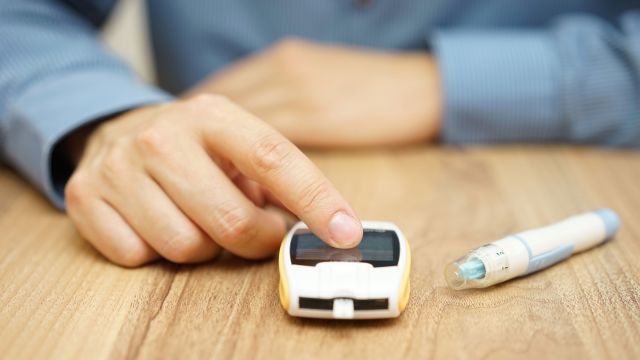There are always new trends in diabetes care. These changes help—and challenge—both patients and healthcare providers. Here are some of the latest developments, and what you need to know to get the most support and the best treatment:
New methods for monitoring blood sugar
In addition to standard blood testing, continuous glucose monitoring (CGM) is being used more and more to track glucose levels in people with diabetes who use insulin. The standard method involves pricking your finger to get a drop of blood onto a test strip, which is then inserted into a glucose meter that measures the blood sample for glucose levels.
With a continuous glucose monitoring system, a tiny sensor placed under the skin measures glucose levels at all times. The results are displayed on a handheld wireless monitor. The system can send alarms when blood sugar gets too high or drops too low. However, continuous glucose monitoring measures only an approximation of the actual blood value. Therefore, patients must still follow up with standard glucose monitoring testing to confirm blood glucose levels and get more accurate results. While CGMs are FDA-approved devices, they are not approved as a replacement for finger-stick testing and they aren't designed to be as accurate for immediate treatment purposes.
More medication options
Medical science is also bringing more diabetes medications to the market, including a gradual release, ultra-long acting insulin—typically used only once a day—and a rapid-acting, inhalable (not- injectable) insulin. Not all types of insulin are recommended for everyone, but if you are interested in exploring different options, speak with your healthcare provider to find out what may work for you.
Better access to diabetes education
More support and education groups are available, both in local communities and online. Check with your local medical center to find out if they have any programmed activities or meetings for people with diabetes. Those recently diagnosed, already living with diabetes or caring for someone with diabetes can also join online conversations sponsored by the American Diabetes Association (ADA) at community.diabetes.org. The ADA also sponsors diabetes events, programs and camps throughout the country. To get more information and find out what’s happening in your area, check their website at diabetes.org.
Continued insurance challenges
While advances in medical science and technology have improved diabetes care, insurance challenges plague many individuals. Diabetes can be an expensive disease, especially when you’re looking for coverage for medications and supplies such as blood test strips.
Insurance companies generally require documentation from healthcare providers to prove that your diabetes supplies and medication are medically necessary in the amounts prescribed. But even with documentation, some companies will cover only a limited number of supplies. Speak with your healthcare provider if you need help getting the supplies you need.
Medically reviewed in August 2020.






